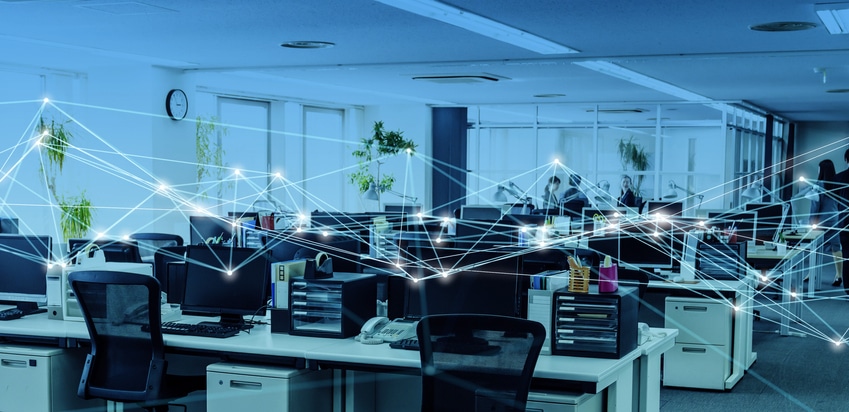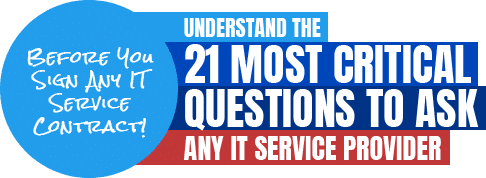
What Is The Dark Web?
As everyday people, we have a certain degree of anxiety about the unknown embedded right into our DNA. That may be why children’s stories about monsters hiding under the bed and things that go bump in the night resonate into adulthood.
But today’s internet boogiemen are not just part of a scary story. They are evil hackers cloaked behind digitized masks that go unseen and are rarely, if ever, held accountable. Cybercriminals also have their own version of the devil’s playground, known as the “dark web.” If your financial security is invested in a business, you have every reason to be afraid of what occurs on the dark web. This is what industry leaders need to know about what transpires, why you should be terrified, and what you can do about it.
The dark web is actually part of the largest portion of the legitimate internet. When we conduct routine searches, we enjoy access to about 1 percent of the billions of web sites and platforms. The other 99 percent are shielded from view by passwords and other protections.
These are typically known as the “deep web,” and they include everything from financial institutions to the backend of U.S. government agencies, among many others. Digital thieves have loosely conspired to create illicit spaces concealed within the deep web to buy, sell, trade, and offer hacking services to the highest bidders.
Due to the fact that this underworld is cloaked in secrecy, no one can be certain about the precise number of criminal platforms that exist on the dark web. A 2019 investigation conducted by Recorded Future unveiled more than 55,000 .onion domains alone. More than 8,000 were considered active and viable.
“We know there are (approximately) 100 live onion sites that are part of the active criminal underground as either high-tier criminal forums, lower-tier but still explicitly criminal forums, or dark web market where illegal goods are sold,” Recorded Future director of science data Garth Griffin reportedly said.
The report also indicates that onion sites range from benign to inactive to criminal hotbeds. Finding these sites and distinguishing one type from another requires heightened cybersecurity expertise. These are reasons why the dark web is a lot like that horror movie that shocks you when the demon leaps out of the closet at night.
What Transpires On The Dark Web?
Most reports about what occurs on the dark web focus on the personal identity and business assets for sale. As an example, CSO Online published a report highlighting some of the troubling and quirky things hackers have stolen and posted as if the dark web were Craigslist. These included the following.
- Login credentials to a $50,000 Bank of America account for $500
- $3,000 in counterfeit $20 bills for $600
- Premium Netflix account for $6
What corporate decision-makers genuinely need to worry about isn’t whether someone is binge-watching Netflix on your dime. What you ought to be unsettled about is whether the following items are being auctioned off.
- Employee Login Credentials
- Intellectual Property & Trade Secrets
- Corporate Bank Accounts and Routing Numbers
- Customer Data Housed on Your Network
Those are the types of digital files that hackers sell at a premium, and other thieves will use to penetrate your system and disrupt the entire operation. Imagine for a moment that a hacker sitting in a Starbucks across the room from you, or one halfway around the world, is currently copying sensitive and valuable records. How would you even know if those files landed on the dark web?
Although your network may be technically secure, when legitimate login credentials are used, cybersecurity alerts may not notify you that the system is under attack. After all, that digital thief logged in using a legitimate username and password. One of the now-classic examples is Marriott International that suffered a marathon four-year breach in which upwards of 500,000 customer records were pilfered off. That’s not even the truly terrifying aspect of the dark web.
Why Business Leaders Should Be Deathly Afraid Of The Dark Web
It may be because we live in a click-bait information age that drives reports about Netflix accounts getting hacked and billion-dollar losses. But those popular reports do little to prepare working professionals about some of the heightened dangers posed by this criminal underground. Along with selling your digital assets, the cybercriminals who haunt the dark web also offer some of the vilest services. These lessor reported dangers could have your organization in the crosshairs of a rival outfit, and you wouldn’t even know it.
- Cyberattack Services: Hackers take payment to go after an organization and disrupt it. Typically assaults include malware infections, distributed denial of service (DDoS), and botnets, among others.
- Access Penetrations: Cybercriminals offer services designed to target vulnerable remote workers and uncover their login credentials. These include remote access Trojans (RATs), keyloggers, and exploits, among others.
- Corporate Espionage: Dark web criminals are willing to penetrate and spy on an organization for competitors at a price. This could include knowing your next bid amount and undercutting it.
The real danger of being targeted by dark web criminals can result in your company suffering diminished value, widespread disruption, and a damaged reputation if your customers and key stakeholders are impacted.
What Business Leaders Can Do To Deter Dark Web Threats
There are two distinct things that decision-makers can do to deter and defend against the wide-reaching dangers posed by ghouls operating on the dark web. The first item involves hardening your defenses. This means patching software, implementing multi-factor password protections, instituting zero-trust profiles, ramping up antivirus software and firewalls, among others. Most importantly, provide ingoing cybersecurity awareness training to anyone with access to your digital files.
Given that a hacker may have already breached your system using an old employee profile or software flaw, it’s crucial to have dark web scans performed. A professional dark web scan uses specialized tools to look into illicit platforms and identify trace elements related to your organization. Once identified, you can circle back and block bad actors from draining bank accounts or leveraging sensitive information.
It’s also advisable to work with a third-party cybersecurity firm to monitor the dark web. The intelligence you receive about an imminent breach or rival planning to pay a hacker to disrupt your business could save your financial future. Keep in mind, this isn’t another scary story. This is the frightening reality of the dark web.
Categories
Hear from Philipp Baumann, owner and founder of BoomTech:


